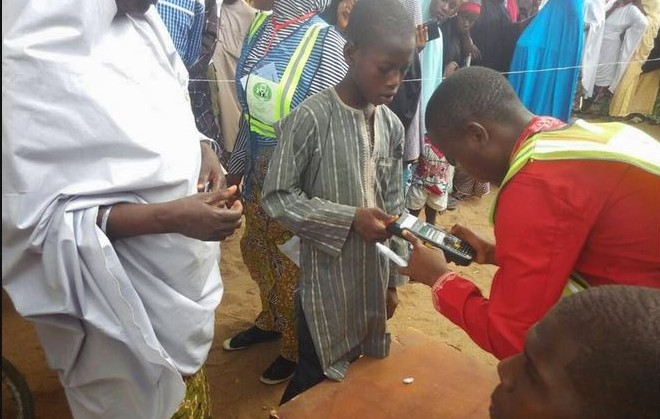By
Chief Akinwumi Akinfenwa
In the theatre of Nigerian democracy, the electorate—the very heart of the system—has paradoxically become both the victim and enabler of its dysfunction. Each election cycle promises a new dawn, but the same tragedy unfolds: the masses, weary yet hopeful, sell their future for a pittance. The recurring question remains—are Nigerian voters truly enslaved, or do they simply love their chains?

The Tragedy of the “₦2,000 Democracy”
An average Nigerian voter has become a symbol of systemic manipulation—a citizen whose birthright is auctioned off for as little as ₦2,000, a bag of rice, or a bar of soap. In exchange for these transient tokens, the voter relinquishes power to corrupt politicians who return every four years, bearing the same deceitful gifts. It is an unending cycle of betrayal—both by the leaders who exploit poverty and by the followers who embrace it.
This phenomenon is not merely about ignorance. It is the deliberate weaponisation of poverty by the ruling elite—a strategy that guarantees the subservience of the masses. When hunger becomes the measure of a man’s decision, integrity and civic responsibility vanish into thin air. The ruling class understands this and has perfected the art of exploitation.
Weaponised Poverty and the Architecture of Manipulation
Poverty in Nigeria is not accidental—it is engineered. The powerful ensure that the majority remain too poor to think beyond the next meal. Social services are crippled, education is underfunded, and unemployment remains unchecked. A people deprived of economic empowerment are easy to control; their voices can be silenced with small inducements during elections.
Political campaigns have thus degenerated into open markets where conscience is traded for cash. Votes are not cast based on ideology, competence, or vision but on the size of the envelope. The politicians who emerge from this transactional process owe allegiance not to the people but to the financiers of their corrupt ascent.
The Illusion of Democracy
Nigeria’s democracy, while outwardly vibrant, is hollow at its core. Elections have become periodic rituals that legitimise mediocrity and perpetuate oppression. The electoral process is riddled with anomalies: vote buying, ballot snatching, intimidation, and compromised institutions. The Independent National Electoral Commission (INEC), often burdened by political interference, struggles to assert its autonomy, while security agencies sometimes act as partisan instruments rather than neutral protectors of the vote.
The result is a disillusioned populace—angry yet passive, aware of their oppression yet complicit in its sustenance. The Nigerian voter is caught in a psychological bind: aware that change is possible but too distrustful, too desperate, or too impoverished to demand it.
The Voter’s Dilemma: Between Hunger and Hope
It is easy to condemn the voter who sells their vote, but the deeper reality is a portrait of desperation. When a parent cannot feed a child, the promise of ₦2,000 becomes a lifeline, not a bribe. The system has conditioned citizens to see elections not as instruments of change but as fleeting opportunities for survival.
The moral question, therefore, is not why the poor sell their votes, but why the powerful have created a system where survival is only possible through submission.
The Path to Redemption
True liberation will not come from politicians—it must come from the people. The Nigerian electorate must awaken from the stupor of dependency and reclaim their collective dignity. Voter education must go beyond slogans; it must empower citizens to understand that a single vote, when cast conscientiously, is more powerful than the billions stolen from the public purse.
Civil society, religious institutions, and the media have a moral responsibility to reorient the public psyche. The youth—now the majority demographic—must rise above ethnic, religious, and monetary inducements to become the vanguard of a new political consciousness.
Conclusion: Breaking the Chains
The Nigerian voter stands at a crossroads: continue as slaves who love their chains or rise as citizens who demand better. Every election offers an opportunity to rewrite the nation’s destiny, yet every misstep deepens the chains of oppression. Until the people understand that their collective strength is greater than any politician’s money, the cycle will remain unbroken.
Democracy will not work for the Nigerian people until they stop selling it for the price of a meal.
Chief Akinwumi Akinfenwa is a Political Scientist, Public Policy Analyst, Social Commentator, and Advocate for Constitutional Decency

